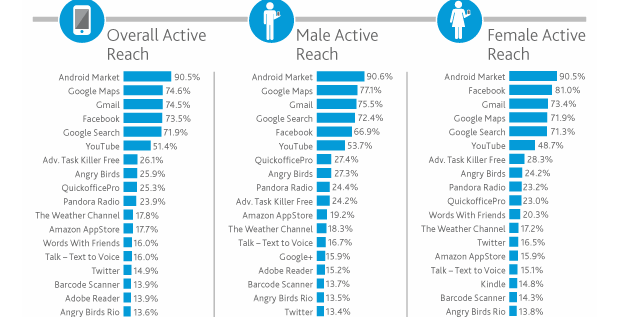Higher Math in High School Means Higher Earnings Later

There is a well-established correlation between years of schooling and labor market success. However, it stands to reason that it is not just years of education that affect future earnings. The curriculum-the kinds of courses a student takes-certainly must have an effect. For example, it seems reasonable that students who take more-advanced math courses in high school should be more likely to pursue postsecondary education and to have higher earnings. For a number of reasons, it is important to understand whether this is true.
First, if high school curriculum does affect educational and labor market outcomes, policies aimed at encouraging students to take a more-advanced curriculum may be a way of increasing both college attendance and later earnings. Second, with the recent elimination of affirmative action programs in California, minority access to postsecondary education may have suffered. If so, this would have severe implications for income inequality between different ethnic groups. Encouraging minority students to take more math might improve their chances of enrolling in college. Third, if a more rigorous curriculum does affect the probability of going on to college and having higher earnings, perhaps more money should be spent on improving curriculum, as opposed to other options, such as spending designed to reduce class size.
In Math Matters: The Links Between High School Curriculum, College Graduation, and Earnings, Heather Rose and Julian R. Betts find a strong relationship between taking advanced math courses in high school and earnings 10 years after graduation. For their analyses, they used data collected in the High School and Beyond survey of a representative sample of students who were in grade 10 in 1980. This survey includes detailed data from the students‘ high school transcripts, information about the highest educational degree the students attained, and information about earnings nearly 10 years after students should have graduated from high school. The survey also contains rich demographic data, as well as information about students‘ families and high schools, which allowed the researchers to account for many non-curriculum factors that may also be related to college graduation and earnings.
Course-Taking Behavior and Long-Term Implications
There was a great deal of variation in the course-taking behavior of the 1982 senior high school class. Twenty-six percent of students completed only vocational math courses and nothing more before leaving school. Another 8 percent stopped taking math courses after completing pre-algebra. Thirty-one percent took an algebra or geometry course, but nothing beyond, and 31 percent took a more-advanced algebra course. Only 4 percent completed a calculus course. This variation in course-taking behavior had long-term implications for these students, affecting how much education they obtained overall and how much they eventually earned in the labor force.
Correlation or Causality?
Although the level of math courses a student takes is correlated with college graduation rates and earnings, correlation does not necessarily imply causation. To net out the true effects of curriculum, the researchers took into account as many other potentially contributing factors as the data would allow: the student’s demographic characteristics, including ethnicity and gender; measures of student motivation and ability, such as grade point average; family background, including parental education and income; and high school characteristics, including school size, teachers‘ education level, and the percentage of disadvantaged students at the school.
Through a series of statistical models, the researchers “washed out” each of these contributing factors until they had a pure mathematics effect. They found that the higher the level of the math course taken in high school, the greater the probability that a student would graduate from college.
Math and Earnings
The researchers’ statistical models demonstrate that part of a math course’s effect on earnings can be explained by its effect on the student’s ultimate level of education. However, part is also explained by a cognitive effect that makes a student more productive. For example, students who take more-advanced math classes learn skills that may be directly applicable to certain jobs. They may also learn logic and reasoning skills that indirectly make them more productive. Skills acquired through learning advanced math may also teach students how to learn, so that once they are on the job, they are promoted to more demanding and more highly paid positions than those who have acquired fewer “learning skills.”
Again accounting for all of the variables noted above, the researchers show-for each level of high school math course-how much of the total earnings increase results from the “cognitive effect” and how much from the “educational effect.” For example, after controlling for the student’s demographic, family, and high school characteristics, one extra course in algebra or geometry is associated with 6.3 percent higher earnings. Of this effect, 3.1 percent derives from the student’s ultimate education level and 3.2 percent appears to be related to the direct cognitive effect. Of this cognitive effect, 3.0 percent remains even after controlling for the student’s ability.
Conclusions and Caveat
The main message of this study is that math matters. Another principal message is that it is not simply the number of math courses a student takes that is important; what matters more is the extent to which students take more demanding courses, such as advanced algebra and geometry. That said, the authors note that for a number of reasons it would be a mistake to suddenly require that all students take advanced courses such as calculus. Such a mandate might well need to be preceded by improved teacher training as well as curriculum intervention in middle schools or even elementary schools, so that high school students are prepared to undertake advanced coursework.
In addition, it is likely that policies that force highly advanced math courses on students would increase dropout rates or result in watering down the work required to complete such courses. What the authors do argue is that their statistical models show that the effect of math courses on earnings does not appear to vary much with respect to student or school characteristics and that a rigorous math curriculum at any school can benefit students of any type. Hence, it is important that schools have the resources to provide all students with an equal opportunity to take some of the more advanced math classes, and students should be encouraged to do so.





IAmNotARapper: RT RT: Higher Math in High School Means Higher Earnings Later http://t.co/b8pHR7hc
IAmNotARapper: RT RT: Higher Math in High School Means Higher Earnings Later http://t.co/b8pHR7hc